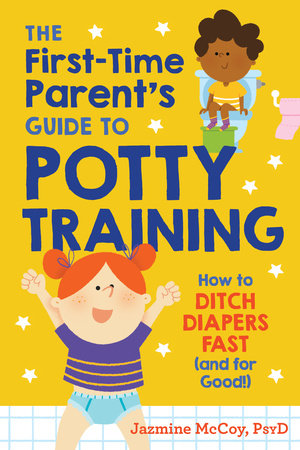Four Developmental Signs Your Child Is Ready for Potty Training
by Dr. Jazmine McCoy
There’s no magical age for potty training. Children in the United States are generally potty trained between 21 and 36 months of age. Nearly one-third of children achieve daytime potty training by 24 months and most achieve it by 36 months; but rather than focus on your child’s age, you should watch for the developmental signs of readiness instead.
You’ll want to ensure that your child has reached the necessary milestones before you start potty training. After all, being able to use the bathroom independently involves a complex set of motor, cognitive, verbal, and emotional skills. During this time, your child is learning all about their body and beginning to make the connection between their bodily sensations and appropriate responses. They must also visualize all of the steps involved in the potty process, including the fact that they need to go, and they must develop a plan on how to get to the restroom, sit on the potty and eliminate, and remain on the potty long enough to finish.
Additionally, your child will be using their motor skills to walk to the potty, push down their pants, sit down, stand up, pull their pants up, flush the toilet, and wash their hands. They are also trying to understand your explanations, expectations, instructions, and reactions, while expressing their own feelings about using the potty. It’s a lot to manage all at once, which is why potty training is a skill that is dependent on pre-existing developmental milestones.
Here are the four main developmental signs to know. Keep in mind that your child does not need to demonstrate all of these signs in order to signal that they are ready. You can also be proactive by teaching your child some of these skills before starting to set them up for success. If your child was born prematurely, has physical or mental difficulties, has a speech delay, or any other developmental delays, they may not be ready to potty train until later than other children, and that’s okay!
- Physiological Development: Signs your child is physiologically ready for potty training include: demonstrating an awareness of the need to eliminate, either by grunting, hiding, squatting, or going red in the face; an absence of bowel movements at night; dry diapers for long periods of time (around 2 hours); urinating a lot at one time; and some regularity of bowel movements.
- Motor Skills: Your child’s ability to walk, handle their clothing (push down and pull up pants, for example), and remain seated long enough to eliminate successfully are all important skills needed for potty training. You can teach your child how to handle their clothing by demonstrating how to dress and undress, and by making sure their clothes are easy to remove.
- Cognitive and Verbal Skills: Common cognitive and verbal signs of potty training readiness include: your child demonstrating the need to use the potty through verbal and nonverbal language; following simple directions; putting toys and other belonging in their right place; reciting their ABCs or other songs; letting you know when they’ve soiled their diaper; and using potty lingo like pee, poop, and potty.
- Emotional and Social Skills: Emotional and social skills are the subtlest of all the developmental milestones. You want to be on the lookout for signs of self-mastery, desire for parental approval, and increased self-reliance. These signs are often manifested in “less than desirable” behaviors, such as hiding during a bowel movement. However, this is a good sign your child is more aware of social expectations. Other signs to look out for are imitating the behavior of others, demonstrating a basic understanding of what the potty is used for, and/or expressing an interest in the potty.
All in all, your child will probably not tell you when they are ready to begin potty training. Instead, watch for the subtle, indirect signs to convey readiness. Want to learn more of the common signs of potty training readiness? Don’t forget to snag my checklist of all of the common developmental signs of potty training, as well as nine handy phrases to use while potty training!

